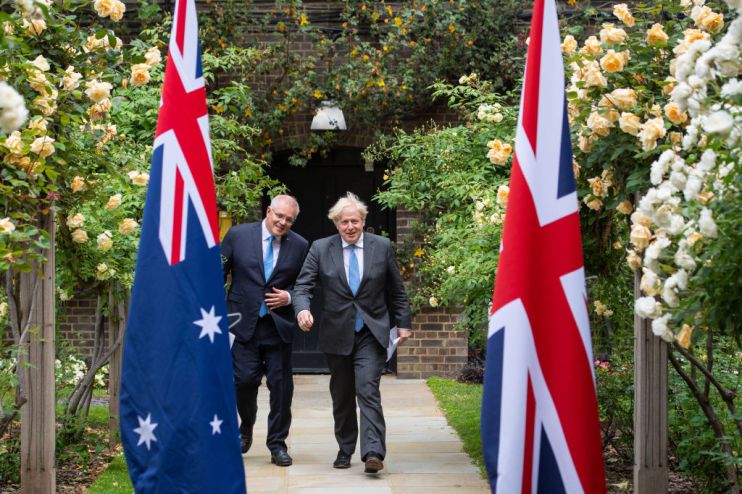Naysayers of Britain’s future trade relationship in Asia-Pacific are determined to live in the past

Hot on the heels of the UK-Australia free trade agreement, the UK has launched negotiations to join the Comprehensive and Progressive Agreement for Trans-Pacific Partnership (CPTPP). Critics, quick to deride the move by pointing out it won’t make up the shortfall from Brexit, completely miss the point. The UK must look forward to the future, to what could be, and build its new position incrementally through partnerships like these.
Naysayers have focused on the relatively small gain membership to the CPTPP will bring to the UK – a GDP boost of roughly 0.08 per cent, a figure still in excess of £1.7bn. It is only around a fortieth of the expected hit of leaving the EU. But comparing it to Brexit losses are based on faulty logic and holding every deal and every new move to this impossibly high goal will be to give into the defeatist misery of those determined to look backwards.
Voters are still deeply divided over Brexit. We are not rejoining the Union anytime soon and the UK needs to begin to make up for the losses and hardship caused. The UK must show its commitment to deep and comprehensive partnerships with other countries, and here symbolism is almost as important as scale. By nature of history and location the UK and the continent were, and will continue to be huge trading partners and new deals are not going to be able to close the gap in the near future, but this is no reason not to make those deals.
The CPTPP offers incredible potential beyond the calculable immediate benefits. The partnership will strengthen ties in a key region and loosen restrictions on services and digital trade.
Asia-Pacific is a region of rapid economic growth. The CPTPP covers a mixture of established extremely developed economies, such as Japan and Singapore, as well as those on the rise such as Vietnam and Malaysia (in addition to huge economies on the other side of the Pacific including Canada and Mexico). Vietnam in particular has seen incredible growth, one of the few to not face a pandemic-downturn, thanks to a resilient and expanding manufacturing industry, a global mind-set and internationally integrated supply chains. More countries are also expected to be added to the group with South Korea and the Philippines having both expressed interest in joining.
Strong ties with these successful and growing economies would aid UK business, and the addition of countries would increase the future rewards too. Not only would the partnership provide direct links to some of these markets, but it would also act as a gateway to the region. If British companies are freer to establish themselves in CPTPP nations, this will reduce the cost of doing business with geographically-close countries who are not yet partners, expanding markets and opportunities even more.
We can’t predict the more intangible, as yet unseen advantages that will accrue as these relationships deepen and cultural ties strengthen. The agreement loosens restrictions on digital and services trade, two sectors the UK excels in as the world’s second largest services-exporter, making it easier for financial and tech companies to establish themselves in the region. This will mean more skilled migration and a freer exchange of ideas between us and some of the most educated and technologically advanced markets in the world, channels that though less tangible and harder to measure, can generate wealth and stimulate innovation.
Joining the CPTPP may not bring with it a huge immediate boost to GDP, and it certainly won’t make up for the shortfall caused by leaving the EU, but that’s not the goal and harping on about this pulls focus away from what is important. What joining will do is signal the UK’s continued commitment to free and open trade and place us in a position to capitalise on our strengths in a rapidly expanding region. Brexit should not hold us back from moving on.
